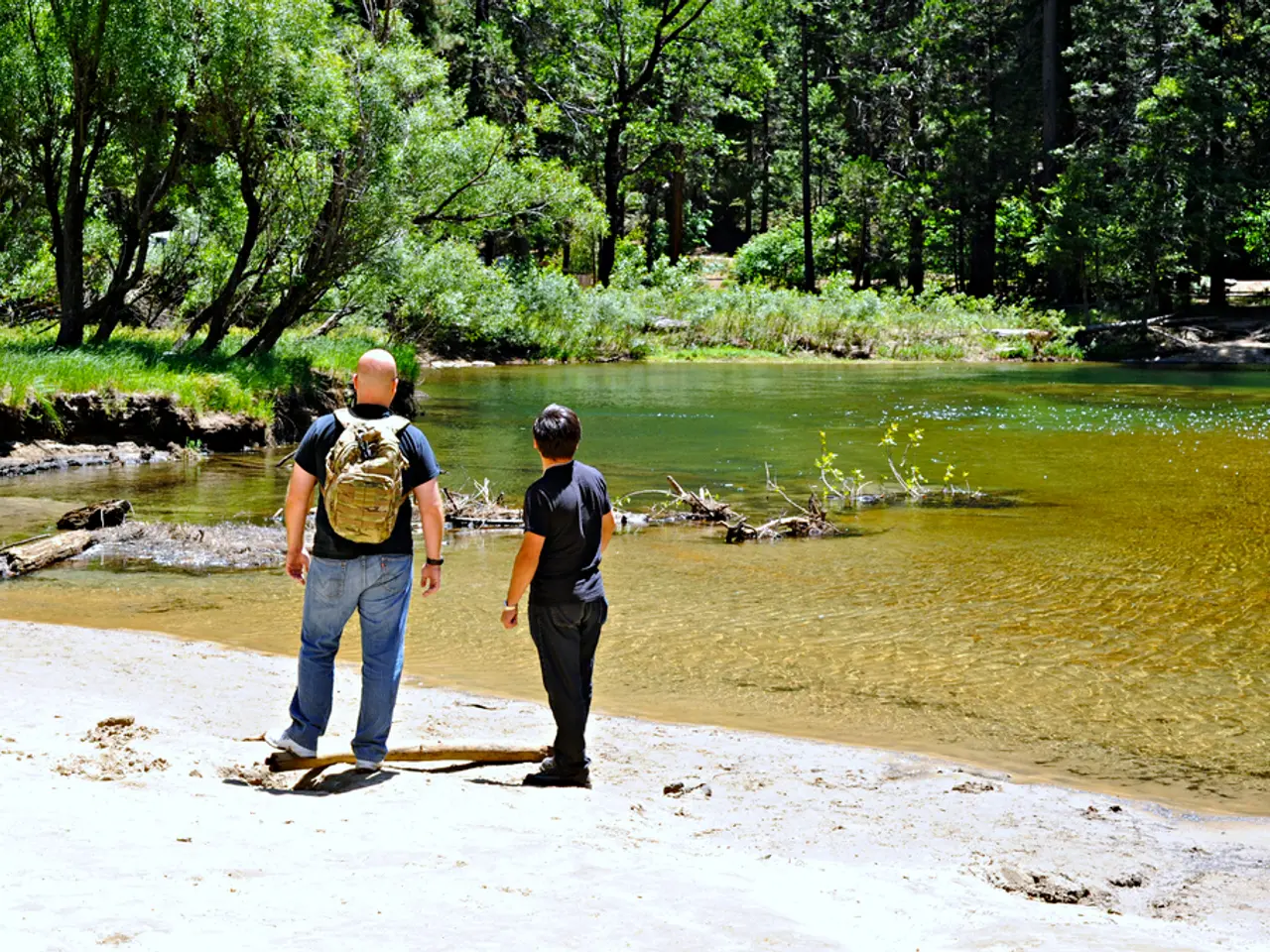Countering heat and dryness through the use of wetlands and woodlands
German Environment Minister Carsten Schneider is proposing a new approach to combat climate change, focusing on enhancing biodiversity and carbon sequestration through the development of mixed forests and rewetting of wetlands.
Schneider is considering complementing financial support for rewetting wetlands with funding for the wet cultivation of agricultural land. This approach could potentially contribute to carbon sequestration efforts, as wetlands, whether natural or resulting from the wet cultivation of agricultural land, help the climate by storing large amounts of carbon dioxide.
The goal of the increased funding is to create mixed forests rich in species better suited to rising temperatures. This move is part of Schneider's efforts to address climate change adaptation, as mixed forests support greater biodiversity compared to monocultures, increasing their resilience to pests, diseases, and extreme weather events.
In rural areas, forests and wetlands act as natural air conditioners while storing water, according to Schneider. Wetlands, for instance, act as natural sponges, absorbing excess rainfall and reducing flood risks in both urban and rural settings. They also improve soil moisture and filter pollutants, improving overall land quality.
In urban areas, mixed forests and rewet wetlands contribute to cooling the environment via shade and evapotranspiration, mitigating urban heat island effects exacerbated by climate warming. They help maintain local microclimates favorable for human health and agriculture.
The wet cultivation of agricultural land, as part of Schneider's plan, could potentially contribute to carbon sequestration efforts. The focus of the new funding for agricultural land is on growing plants such as reeds.
Schneider is also increasing funding for the "Climate-Resilient Forest Management" program by 10 million euros, aiming to reach 145 million euros annually over the next decade. This program focuses on creating forests that are more resilient to the effects of climate change.
In addition, Schneider believes that nature is the main ally in combating heat and drought, as well as heavy rains and flooding. Trees planted in streets and unpaved areas in cities, he suggests, can make a significant difference in summer temperatures.
Today, Schneider is visiting climate adaptation projects in Berlin and Brandenburg to observe the progress and discuss further plans. These nature-based solutions, as emphasized by Minister Schneider, offer several specific benefits for climate change adaptation in urban and rural areas, including enhanced biodiversity and ecosystem resilience, improved carbon sequestration and storage, water regulation and flood mitigation, temperature regulation and urban heat mitigation, soil protection and nutrient cycling, and support for sustainable livelihoods and recreation.
- Germany's Environment Minister, Carsten Schneider, is proposing to boost biodiversity and combat climate change by focusing on mixed forests and rewetting wetlands, also considering financial support for the wet cultivation of agricultural land.
- Schneider's plan for the wet cultivation of agricultural land could potentially increase carbon sequestration through growing plants like reeds.
- Schneider is increasing funding for the "Climate-Resilient Forest Management" program to reach 145 million euros annually over the next decade, focusing on creating forests that are more resilient to climate change effects.
- Trees planted in urban areas can mitigate urban heat island effects, offer shade, and regulate temperatures, according to Schneider, making them an important part of the finance, environmental-science, and industry efforts to combat climate change.




